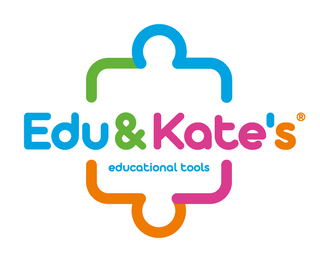Challenge their Brain! Improve their cognitive skills
What is cognition, you may ask? Well, it's all about knowledge. The word itself comes from the Latin "cognoscere," which means knowledge. So when we talk about cognition, we're basically referring to everything that has to do with knowledge. It's about our ability to process information that we perceive from the world around us, the knowledge we gain from our experiences, and even our own unique qualities. Cognition covers various cognitive processes, like learning, attention, memory, language, reasoning, and decision-making. These processes are all part of our intellectual development.
Different fields of study, such as neurology, psychology, philosophy, and information sciences, have all delved into the study of cognition. However, it was cognitive psychology that really started exploring how information processing influences our behavior and the connection between different mental processes in acquiring knowledge. Cognitive psychology emerged in the late 1950s, and influential thinkers like Piaget and Vygotsky revolutionized the scientific landscape with their theories on cognitive development and learning. These theories still hold true today. From the 1960s onwards, interest in cognition and cognitive abilities grew exponentially, leading to a wealth of research that expanded our knowledge on these processes.
So, what exactly are cognitive processes? Think of them as the procedures we use to learn new things and make decisions based on that knowledge. There are several processes that help us understand the world and explain human behavior. These include attention, perception, representation and memory, language, reasoning, and decision-making. All these cognitive functions work together to integrate knowledge and create our understanding of the world around us.
In order for our brain to process all this information, different areas of the brain need to work together. Each area is responsible for different functions that come together as one cohesive competence. It's important for these brain areas to be mature and functioning properly according to age, so that our brain can respond effectively to environmental stimuli and facilitate learning and adaptive development.
That's why it's crucial for children to have the opportunity to develop all the necessary cognitive skills. We need to take preventive measures against biological and environmental factors that may disrupt brain structure or function. This means providing a healthy environment, both biologically and emotionally, for children. It's important to create spaces and provide materials that stimulate cognitive progress and growth.
Cognitive stimulation is all about activities that challenge the brain, like brain games, puzzles, and other mentally stimulating activities. The main goal of cognitive stimulation is to improve cognitive abilities and delay the onset of cognitive decline. On the other hand, cognitive rehabilitation is a therapeutic intervention for individuals who have suffered brain injuries or have cognitive impairments due to illness. The aim of cognitive rehabilitation is to restore lost or impaired cognitive functions. It usually involves specialized therapy and exercises, under the guidance of a professional.
In this regard, Edu&Kate's games are great tools for enhancing children's cognitive development and stimulation. Their games are tailored to different age groups, providing constant challenges that keep the brain stimulated and balanced between attainable goals and the right level of difficulty
